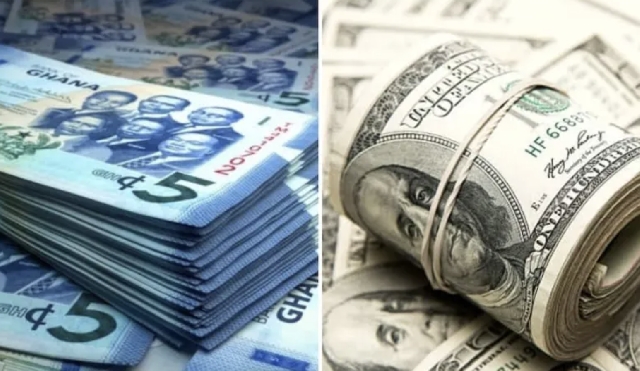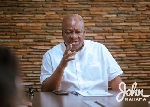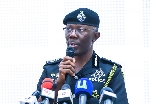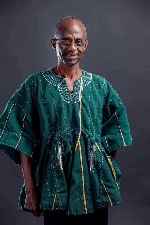Ghana’s cedi stabilisation: A risky gamble ahead of elections
 C edi to Dollar
C edi to Dollar
As Ghana heads into a highly anticipated general election, the government’s efforts to stabilise the cedi have intensified.
Trading at GH¢16.30 to the US dollar in the open market, down from GH¢17.40 earlier in November, the cedi’s recent strength is being touted as a policy success.
However, this apparent stability conceals the reality of unsustainable interventions, raising concerns about whether these measures are designed to set a financial trap for the widely expected incoming administration of John Mahama and the National Democratic Congress (NDC).
Artificial Stabilisation: A House of Cards
The government’s strategy to bolster the cedi involves depleting Ghana’s international reserves—a dangerous gamble that undermines long-term economic stability.
Official reports from the Bank of Ghana (BoG) indicate that gross international reserves (GIR) stood at $7.5 billion as of August 2024, equivalent to 3.4 months of import cover.
While this figure might appear promising, it includes encumbered assets such as the Ghana Petroleum Fund, pledged reserves, and balances at the Ghana International Bank (GIB).
Encumbered assets, by definition, are unavailable for immediate use in defending the currency or meeting external obligations. When these are excluded, the true net international reserves (NIR) fall to approximately $1 billion—far below what is required to sustain a stable currency.
The difference between the BoG’s calculation and the IMF’s standardised guidelines highlights the extent of this discrepancy.
Governor Ernest Addison’s candid admission underscores the unsustainable nature of this policy: “If I want to drive the dollar-cedi rate to GHS 10, I can do that tomorrow. But what about the day after tomorrow?” This statement reveals that the current stabilization effort is a short-term measure with potentially catastrophic long-term consequences.
A Political Gambit with Economic Risks
The timing and nature of these interventions suggest that they are politically motivated.
With polls indicating a likely victory for John Mahama and the NDC, the current administration appears to be engaging in a deliberate effort to create a veneer of economic stability before the elections.
This strategy not only boosts the ruling party’s image but also shifts the burden of economic fallout onto the incoming government.
As the festive season approaches, many Ghanaians are grappling with rising costs due to a year-to-date cedi depreciation of 24.3%.
By artificially stabilising the currency during this critical period, the government creates the illusion of economic competence while postponing the inevitable collapse.
The implications of this gambit are dire. Once the elections are over, the artificial supports holding up the cedi are likely to crumble, triggering sharp depreciation, surging inflation, and worsening economic hardship.
The incoming administration will face the unenviable task of managing this fallout while dealing with a severely depleted reserve position.
The Debt Time Bomb
Adding to the gravity of the situation is Ghana’s domestic debt exchange programme. Payments on restructured bonds were deferred to February 2025, leaving the next government to confront this looming financial obligation.
With limited reserves and a currency under pressure, meeting these payments will require difficult trade-offs that could further strain public finances.
The divergence between the BoG’s reserve calculations and the IMF’s guidelines compounds the challenge. The inclusion of encumbered and illiquid assets in the official reserve figures obscures the true extent of Ghana’s financial vulnerability.
This lack of transparency undermines investor confidence and limits the policy options available to the next administration.
Implications for Ghana’s Economy
The economic challenges awaiting the incoming government are daunting.
The likely post-election depreciation of the cedi will exacerbate inflationary pressures, erode purchasing power, and increase the cost of servicing external debt.
Public trust in economic management will be further eroded, making it more difficult to implement necessary reforms.
Moreover, the depletion of reserves leaves Ghana ill-equipped to respond to external shocks, such as rising global interest rates or fluctuations in commodity prices.
The incoming government will need to prioritise rebuilding reserves, stabilising the currency, and restoring macroeconomic stability—all while navigating a highly polarized political environment.
Why the IMF Should Be Worried
The IMF should be deeply concerned about Ghana’s current approach to cedi stabilisation.
The government’s manipulation of reserve figures—by including encumbered assets such as the Ghana Petroleum Fund and balances at the Ghana Infrastructure Bank—violates IMF guidelines, which require reserves to be liquid, unencumbered, and readily available.
This lack of transparency undermines trust and creates a misleading picture of Ghana’s economic health.
Artificially stabilising the cedi by depleting reserves directly conflicts with the IMF’s goal of fostering sustainable economic recovery.
The short-term focus risks a post-election currency collapse, eroding confidence and destabilising the macroeconomic environment.
By allowing such unsustainable policies, the government jeopardises the credibility of the IMF programme and complicates its ability to provide effective oversight, posing risks not just for Ghana but for IMF engagements worldwide.
Immediate action is required to ensure compliance and protect the programme’s long-term viability.
Conclusion
The recent stabilisation of the cedi, while offering temporary relief, is a dangerous illusion that masks deeper structural vulnerabilities.
The current administration’s actions raise serious questions about their motives, particularly given the likelihood of a change in government.
By depleting reserves and engaging in unsustainable currency stabilisation, they may be setting a financial trap for their successors.
For the incoming administration, the road ahead will be fraught with challenges.
The economic storm that awaits will test their resolve, leadership, and capacity to implement meaningful reforms.
As Ghana stands at this critical juncture, the need for transparent and sustainable economic policies has never been greater.
Whether the nation can navigate these turbulent times will depend on the ability of its leaders to rise above short-term political considerations and prioritise the long-term well-being of the Ghanaian people.
Korsi Dzokoto
Economic Policy & Financial Analyst
Source: Korsi Dzokoto
Trending Features

Resetting Ghana together: A call to unity of purpose for dear nation
09:32
Owula Mangotey cautions Akufo-Addo against plans to sack Dampare
11:31
The resilience of women entrepreneurs and stratcomm Africa’s 30-year journey of impact
17:46
Court ruling on re-collation flawed
12:31
Happy Birthday to a mentor, godfather, experienced politician and distinguished leader - Johnson Asiedu Nketiah aka Chairman General Mosquito
00:38




